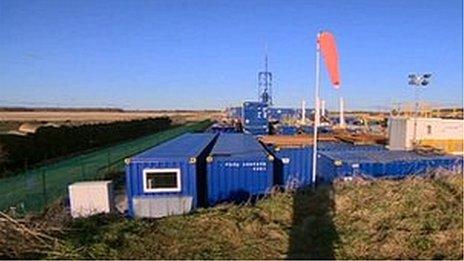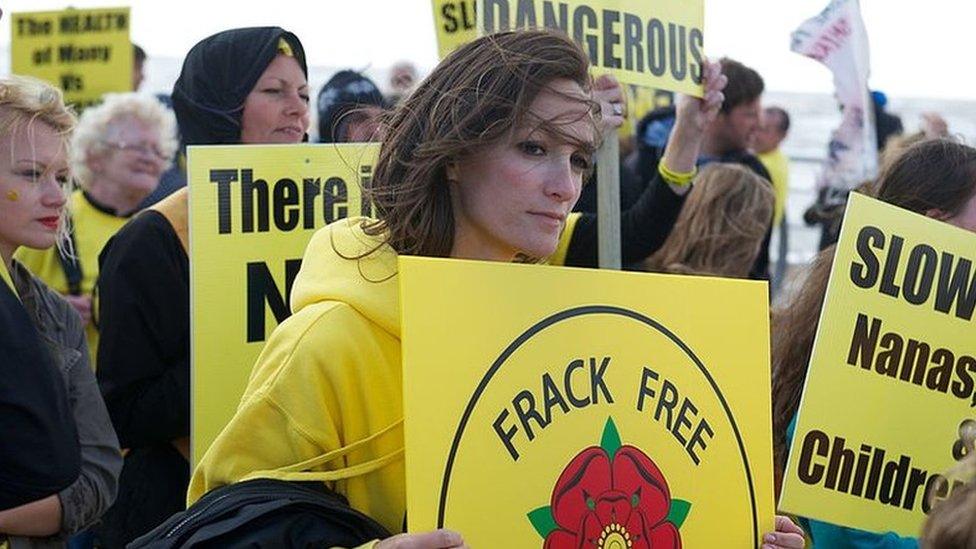'Generous' tax breaks for shale gas industry outlined
- Published
- comments
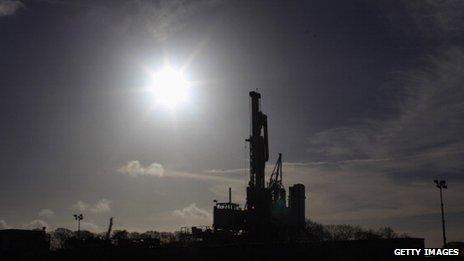
The UK is believed to have large resources of shale gas that have yet to be extracted
The government has outlined plans to give tax breaks to companies involved in the UK's nascent shale gas industry.
It has proposed cutting the tax on some of the income generated from producing shale gas - found in underground shale rock formations - from 62% to just 30%.
The plans would make the UK the "most generous" regime for shale gas in the world, the government said.
But they have been criticised by environmentalists, with Friends of the Earth calling them a "disgrace".
Greenpeace added that communities affected by fracking - the technique for extracting shale gas - faced a lot of disruption for very little gain.
Chancellor George Osborne says Britain must be" at the forefront of the shale gas revolution"
Chancellor George Osborne said shale gas was a resource with "huge potential" for the UK's energy mix.
"We want to create the right conditions for industry to explore and unlock that potential in a way that allows communities to share in the benefits," he said.
"I want Britain to be a leader of the shale gas revolution because it has the potential to create thousands of jobs and keep energy bills low for millions of people."
The shale gas firm Cuadrilla welcomed the news and said it would consider the implications.
"Whilst we are still in the exploration phase, we believe that shale gas has the potential to make a considerable contribution to the UK's energy supply and security, while at the same time creating thousands of jobs and generating very significant tax revenues and community benefits," said Cuadrilla's chief executive, Francis Egan.
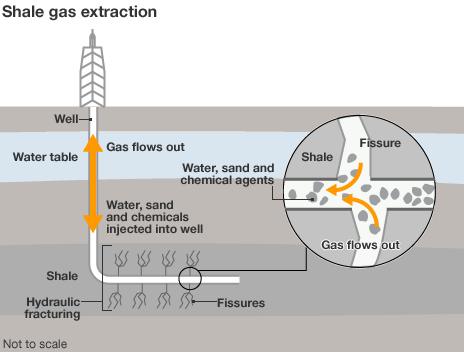
The UK is believed to have large resources of shale gas.
A recent report from the British Geological Survey estimated there may be 1,300 trillion cubic feet of shale gas present in the north of England alone - much of it in the Bowland Basin under Lancashire.
Drilling companies have previously estimated that they may be able to extract about 10% of this gas - far in excess of the three trillion cubic feet of gas currently consumed in the UK each year.
However, the industry is still in its infancy with a handful of companies holding licences for shale gas exploration in the UK, none of which have begun extracting gas.
Water quality
In backing shale gas exploration, the government points to the experience of the US, where a shale gas boom has had a dramatic effect on the energy sector.
Under its plans, the tax break would apply to a proportion of the income generated from shale gas production. What that proportion is will be determined after a consultation.
BBC industry correspondent John Moylan says the industry regards the tax incentives as necessary, as costs are likely to be high during the initial exploration phase over the coming years.
The government has also confirmed plans to give communities that host shale gas sites £100,000 per site, and up to 1% of all revenues from production.
That is designed to offset some of the controversy surrounding the process of fracking.
Science Editor David Shukman explains the process of fracking
There are concerns the process, which involves pumping high pressure water, sand and chemicals into rock to force out the gas, is related to water contamination and even earth tremors.
Water companies have warned that the quality of drinking water must be protected "at all costs".
Water UK, which represents the UK water companies, points out that fracking requires huge amounts of water which could put a strain on local supplies.
It also says the drilling and the fracturing process could damage water pipes.
"The water industry is not taking sides. If it (fracking) goes ahead we want to ensure corners are not cut and standards compromised," said Jim Marshall, policy and business adviser at Water UK.
Environmental groups argue that investment in the industry will divert attention from the need to develop renewable sources of energy.
Andrew Pendleton, from Friends of the Earth, condemned the move.
"Promising tax hand-outs to polluting energy firms that threaten our communities and environment, when everyone else is being told to tighten their belts, is a disgrace," he said.
"Ministers should be encouraging investors to develop the nation's huge renewable energy potential. This would create tens of thousands of jobs and wean the nation off its increasingly expensive fossil fuel dependency."
- Published19 July 2013
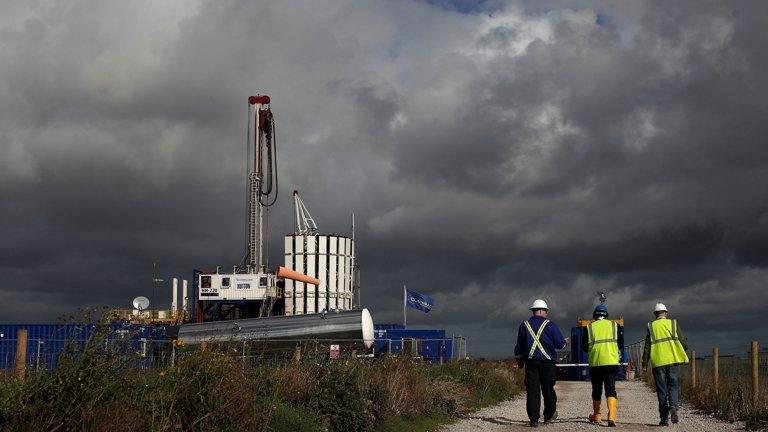
- Published27 June 2013
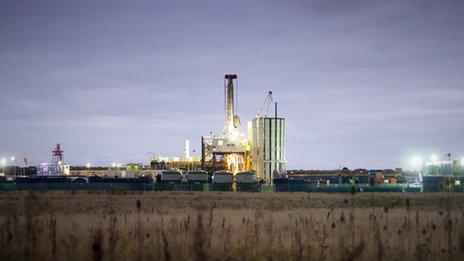
- Published5 July 2013
